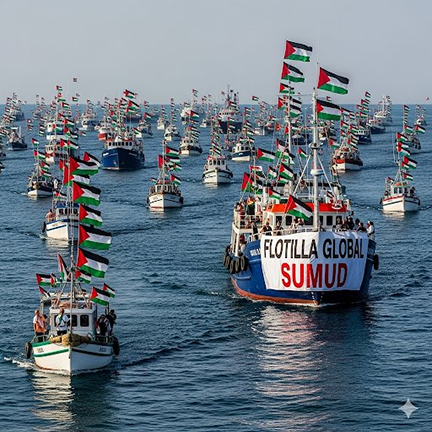
The convoy of boats en route to Gaza from Italy.
Essere in alto mare!
“To be on the high seas!” is the call for Italians who want to help the war ravaged people of Palestine.
One part humanitarian mission. One part publicity stunt. All in the Mediterranean Sea.
The Global Sumud Flotilla (GSF) is the name given to the international civilian convoy now on its way to Gaza. The Arabic word—Sumud—means perserverance or resilience in Arabic; and is in reference to the ongoing resistance to Israeli occupation of Palestine. Boats of all sizes are loaded with humanitarian aid to challenge Israel’s naval blockade. The convoy comprises roughly 50 small civilian vessels—a patchwork of sailing yachts, converted fishing boats, and a few larger NGO ships—crewed by activists, medics, lawyers, and journalists from Italy and other countries.

The convoy of boats en route to Gaza from Italy.
⸻
On Life Support
The fleet is dominated by small craft (yachts and refitted fishers), with a limited number of professional humanitarian vessels. One of the best-known support ships is Life Support, operated by the Italian medical NGO EMERGENCY.
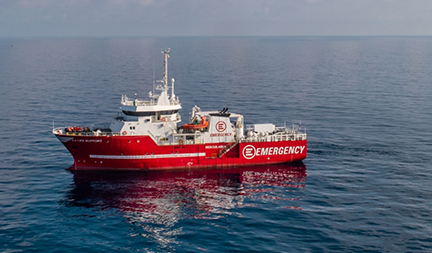
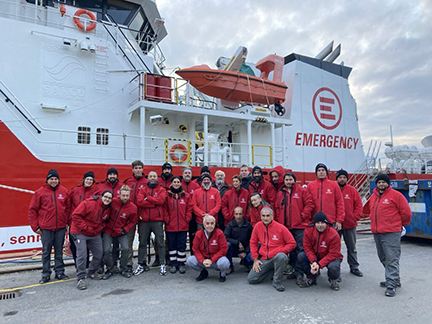
NGO EMERGENCY has a vessel and crew to support the Gaza flotilla.
⸻
Porto di partenza
Italy has served as a staging area in two waves of humanitarian efforts. For the Global Sumud Flotilla (GSF) wave, EMERGENCY announced departures from Catania and Siracusa (Syracuse) as part of the Italian delegation. Life Support is sailing “as an observer” to provide medical and logistical aid to smaller boats. Life Support was “the last of the Italian boats to leave” after many had set off from Sicily.
The Freedom Flotilla Coalition is the principal organization supporting the sea convoy. They tested the waters in early July when their boat—Handala—used Syracuse as porto di partenza (point of departure). The vessel made a stop in Gallipoli (Italy) before it was intercepted at sea.
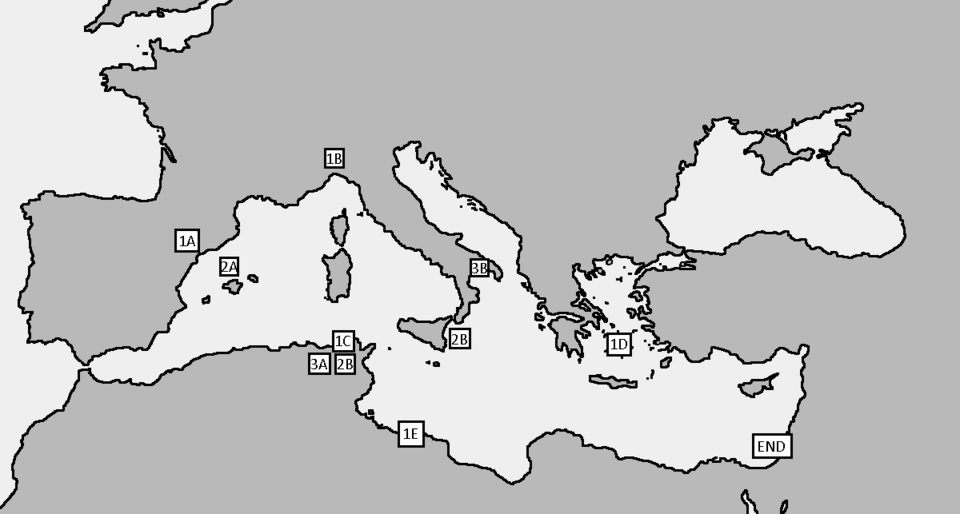
The map represents the ports of departure and stops for the Gaza flotilla.
1A (Almeria, Spain), 2A (Mallorca, Spain) 1B (Genoa), 2B (Siracusa), 3B (Galipoli, Apulia), 1C (Bizerte, Tunisia), 2B (Tunis, Tunisia), 3A (Sfax, Tunisia)
1E (Tripoli, Libya), Gavdos (Crete, Greece)
End (Gaza)
⸻
Docking points along the route
Because most vessels are small, the current convoy will in legs, stopping to regroup, repair, and resupply. Some boats left from Spanish ports while many others left from Genoa and Galipoli (Apulia), in addition to Siracusa. They will stop in Tunisia’s Bizerte before they sail to Greek waters south of Crete. It was there, in Gavdos, in July, that activists claim to have been attacked by drones.
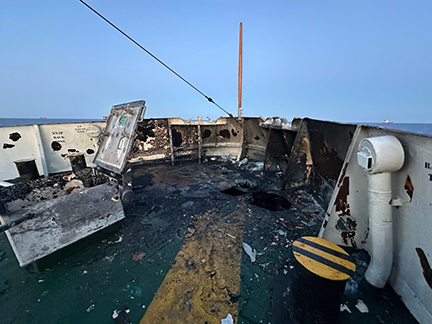
Drone damage done to one of the flotilla's vessels in summer.
A direct Genoa–Gaza run comprises 1,500–1,600 nautical miles. Small yachts and fishing boats, averaging 6–10 knots, may take up 10 days to reach Palestine. With stops along the way because of weather, inspections, and repairs, can delay the journey from 10 to 15 days.
——
Medical EMERGENCY
EMERGENCY is, arguably, the foremost Italian NGO involved in the Gaza flotilla. The organization was founded by husband-and-wife team, Gino Strada, a heart surgeon, and Teresa Sarti Strada, a teacher. Their mission was to provide high-quality medical care in the world’s battle zones with clinics started in Afghanistan, Sudan, Sierra Leone, and Iraq. Teresa died in 2009 from pancreatic cancer while Dr. Strada died in 2021, from complications of a heart attack he suffered, some years earlier, in Iraq. The NGO is now led by Rossella Miccio, a veteran of field work in humanitarian endeavors.
The captain of Life Support has strict orders not to run the Israeli blockade. The broader organizational umbrella is transnational (Global Sumud Flotilla / Freedom Flotilla networks), but EMERGENCY has publicly framed its role as humanitarian support to a civilian convoy.
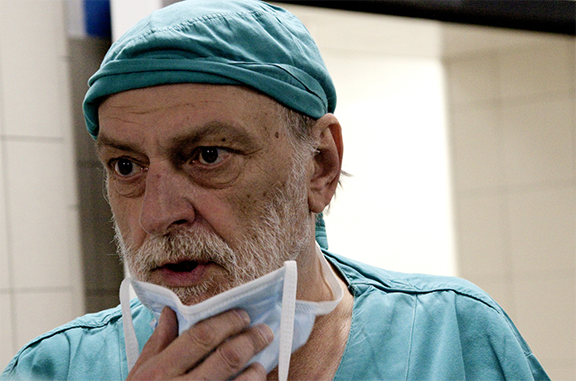
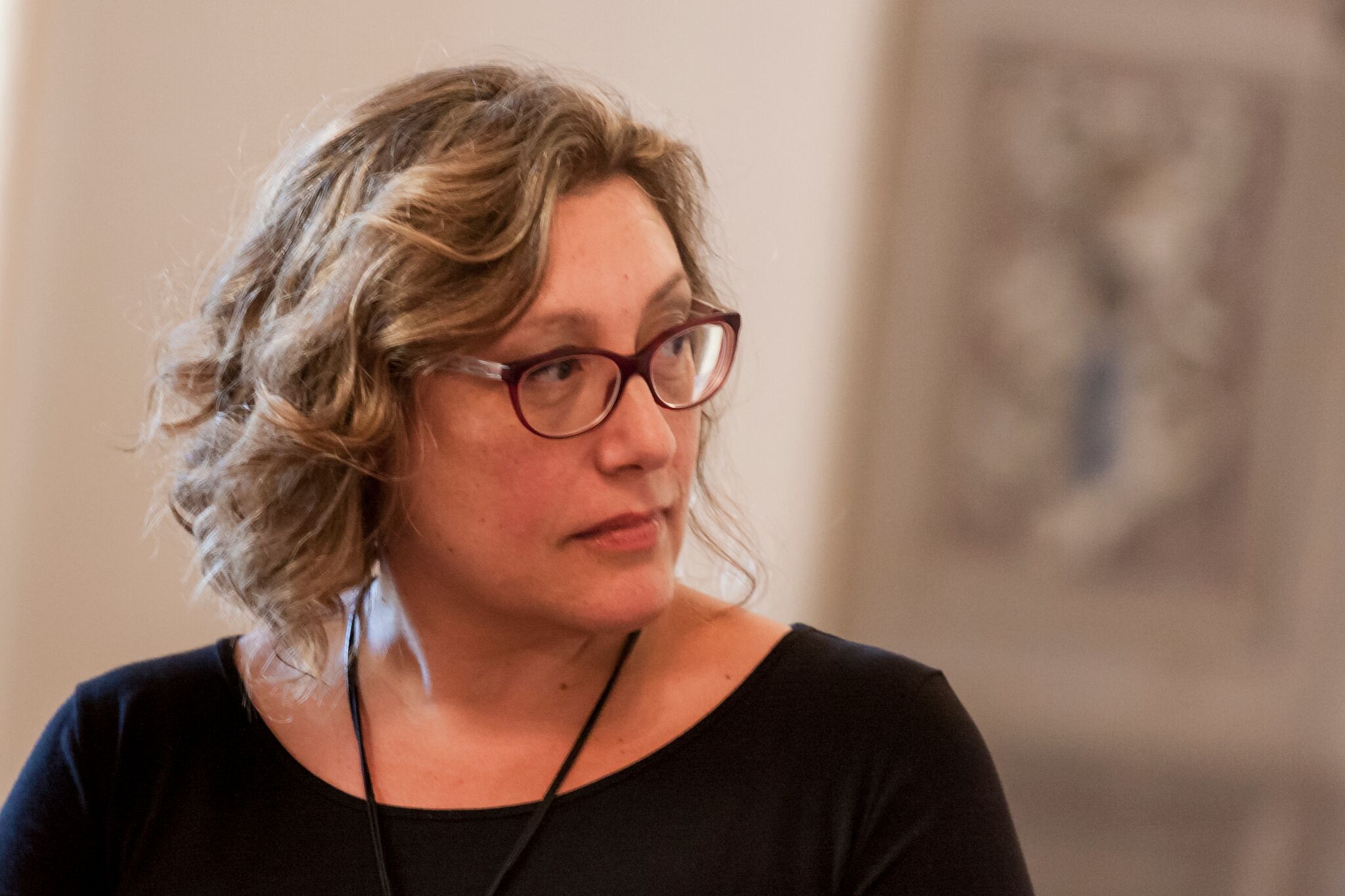
Founder of EMERGENCY, Dr. Gino Strada. After his passing in 2021, the NGO's president has been Rossella Miccio.
⸻
Italian Navy Called to Action
Previous drone attacks underscored the threatened safety of the flotilla, as raised in the Italian press and elsewhere. The government was called to offer support. Italy’s defense minister, Guido Crossetto, ordered the frigate—Virginio Fasan—to protect the flotilla. He then announced a larger vessel, the Alpino, to join the naval escort. Spain has signaled a similar move to ensure safe passage for the flotilla.
Returning to Rome from New York, where she made an impassioned speech at the UN General Assembly 80th Session, Prime Minister Giorgia Meloni urged the flotilla to anchor in Cyprus. She wants organizers to hand over their aid on the Greek island for distribution there by the Latin Patriarchate of Jerusalem. Organizers of the flotilla rejected this option because their stated aim is to directly challenge the Israeli blockade of Gaza.
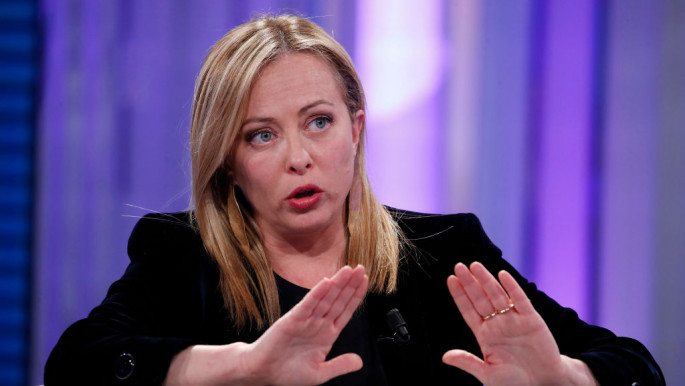
Prime Minister of Italy, Giorgia Meloni, wants the flotilla to anchor in Cyprus.
⸻
Meloni, Netanyahu, Trump
Establishing close ties with Israel while acknowledging the broad assaults on civilians in Gaza, Italy’s prime minister, Giorgia Meloni, has had to play both sides in the flotilla controversy. She condemned the reported drone attacks and then criticized the flotilla as a “dangerous, irresponsible” initiative.
Benjamin Netanyahu opposes any attempt to breach the Israeli naval blockade. He says aid should be routed via approved channels or Israeli-controlled ports. He continues a strong stance against legitimizing Palestinian statehood and has zero tolerance for actions viewed as aiding Hamas.
While not commenting on the flotilla specifically, President Trump criticized the United Nations for recognizing a Palestinian state as a “reward” for Hamas. His administration has focused on alternative arrangements for Gaza relief. Trump wants post-war governance with regional partners—positions consistent with opposition to blockade-breaching flotillas.
⸻
Status of Flotilla
The current push is the largest, most coordinated flotilla in years. Boat size, long routes, and intense security may hamper the effectiveness of the convoy. Italy’s visible humanitarian presence is countered by political resistance to breach the Israeli blockade. The flotilla organizers claim the symbolism of civilians arriving by sea matters as much as the aid they carry; Israel insists the blockade will be enforced. From Italy, the convoy creeps forward, port to port, under drones and headlines alike.
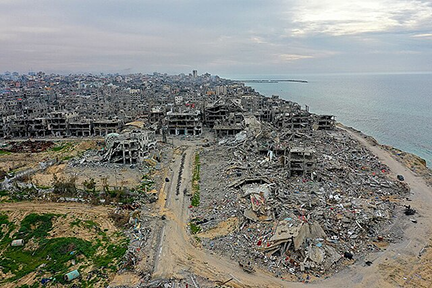
Gaza, today
Editor’s Note: The web site for the NGO, EMERGENCY is https://en.emergency.it